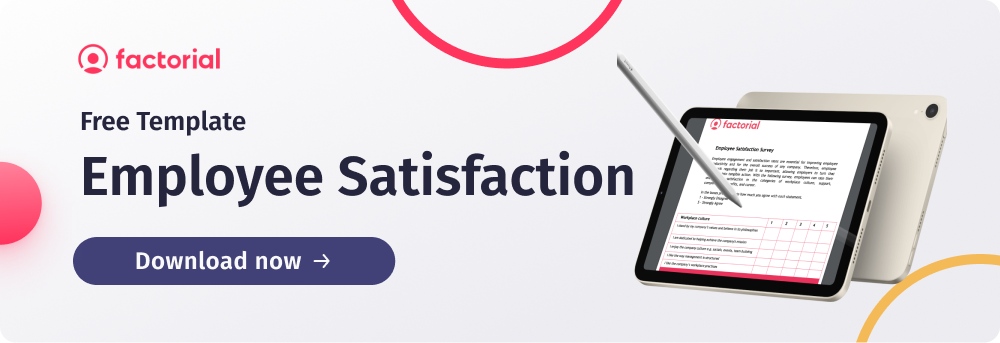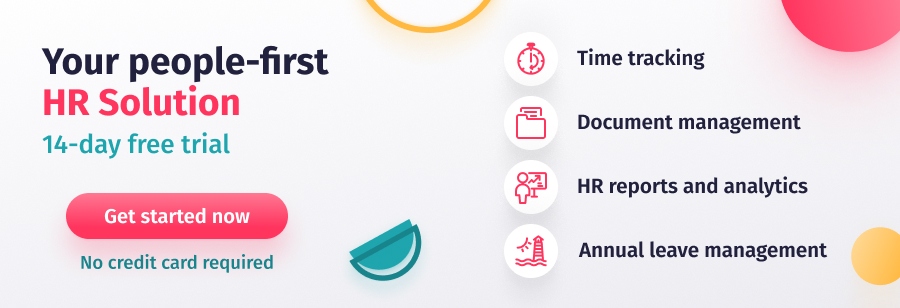Is there a magic formula for great company culture? We believe the key to having better corporate culture is by putting people first and treating them as you would like to be treated.
In our latest Fireside Chat, Sophia Patel, HR Manager at Expac, and Anna-May Jones, Account Manager at Factorial, shared their inside knowledge on talent management and putting people first in order to change company culture. Here you can read a short summary of the main concepts and questions they discussed.
Talent Management
What is (global) talent management?
Talent Management is the end-to-end journey of an employee’s life cycle within an organisation. This encompasses right from where you would begin to strategise resource planning and the initiatives to attract talent, all the way to the end of the journey through to departure and including succession planning.
It is important to note here that when we refer to Talent we include each and every individual within the organisation as opposed to just those you consider to carry ‘more impactful roles’. An organisation would not hire an individual unless they were talented however great or small it may be.
If we ask what is involved in talent management then I would say to attract, to develop, to manage and to support. These would be your core areas to create a framework, but what and how much fills that framework is really up to you and your organisation. Factorial is a really good platform that has been well-designed to enable HR professionals like myself to be as simplistic or creative as they want in creating these processes.
– Sophia Patel, HR Manager at Expac
Why is talent management important?
Talent doesn’t stop at the door and whilst we spend so much time and effort in attracting talent, it’s equally important to develop, encourage and retain this talent. If we focus on strengths and support the weaknesses it would be less common for a business to face failure through its people. Managing people positively through well-designed strategies aimed to help achieve organisational goals is fundamental for any business to be successful.
Putting People First
Often it is a misconception that a company is recognised and better represented by the leadership team but in actual fact, a company’s employer brand is established by the people within and better promoted by those greatly impacted by internal policies and strategies.
This is really really important and certainly something I’m very passionate about and the whole reason why I am in HR. I always say people make a business and so if we didn’t have people there would be no business. My ethos in this is a happy workforce makes a better workforce, therefore it is quite necessary that we adopt a people-focused approach to all aspects of our day-to-day decisions. Here at Expac we have been able to connect with our staff to understand their needs and wants and given them a voice and really just having a presence amongst the teams. Often it is expected that it is solely the Line Managers’ responsibility to take care of the employee but that is not true. It is the collective responsibility of the leadership team to create an environment where people are treated equally but with equity, respect and with compassion.
– Sophia Patel, HR Manager at Expac
Communication forms a big part of this process and so our objectives should be to create those clear lines of communication. HR plays a vital role in acting as a pillar and the grip of holding things together – HR can drive and influence the management and leadership teams in putting people first. Designing processes and initiatives around this focus leaves little room for deviation.
Changing Culture in the Workplace
Vision, values and principles – Understanding, adaptability and bringing everybody on board
I suppose these are the basics, aren’t they? Vision, values and principles are what bind the team together and ensure everyone is on the same page. It’s what connects the team to the overall mission and the driving factor of defining the purpose of the business. The approach once again is more around employee engagement and having interactions with the teams as regularly and constructively as possible to create transparency and alignment – breaking the ‘us and them’ culture.
– Sophia Patel, HR Manager at Expac
Coaching and mentoring
To succeed in that process you will first need to mentor and coach your management teams – teaching different techniques of engaging with their staff and overcoming challenges when faced with resistance or lack of confidence in change. The provision of support is really important here and that could be through recognition and regular feedback – which can be well implemented through factorial (performance, surveys and communities).
Real-time feedback and active response
The key factor in maintaining employee confidence is to respond to any and all feedback. Nobody likes to be asked for their opinion and then just be ignored – the same rule applies to your staff.
The ‘you said, we did’ is really effective in making your staff feel they are heard. Not enforcing a hierarchical style of management – something we’ll be implementing here is directors lunches or meet and greet sessions whereby once a month we form groups consisting of staff from different departments who then attend a face-to-face interactive session with a senior leadership member and ask questions and get to know each other…feedback would be recorded and then discussed in weekly management meetings with agreed actions.
Managing Remote Teams
I know this is a trending topic at the moment although businesses are now drifting back to office work, you may still have members of staff who are remote working. My understanding is that a difference in the working arrangement shouldn’t deprive any employees of being treated or managed in the same way they would be in the office. It’s all about being flexible and finding solutions to continue to offer those means of support.
– Sophia Patel, HR Manager at Expac
It really depends on understanding each member individually – different people choose to work remotely for different reasons – some out of preference others due to the requirement of their employer or their role. Each person will have different expectations on the level of interaction they want to or need to have with their line manager and it’s better to continuously adapt and be flexible.
I also think setting rules and guidance also helps the team to be aligned and work together. Managing the team in smaller groups such as working with them and supporting them through mini-project management initiatives really helps create a bond within the team but also overall when they come together on a frequent basis to round up on individual activities and share ideas and experiences. Focusing on recognition, appreciation and constructive feedback within those sessions so they don’t miss out on what they would normally experience if they were to be in the office.
– Sophia Patel, HR Manager at Expac
Watch the Live Fireside Chat with Sophia
HR Software for Managing Talent in the Workplace
Factorial’s employee portal can help your employees access all their personal information, documents and other functionalities anywhere and anytime. The handy portal improves internal communication while saving time and money.
You can also use our HR software to create a solid community of workers and make sure everyone is aware of the latest news, with our internal communication system. Create events, reminders and connect with your employees effortlessly, wherever you are. And with our powerful analytics, you can truly understand how each employee is performing and developing and the impact they are having on the success of your business.
About Sophia Patel and Expac
Sophia Patel is an active member and associate of the Chartered Institute of Personnel and Development. She is currently working as HR Manager for Expac (Preston) Ltd and I Love Cosmetics under the GRI Group. Sophia has a combined experience of 13 years in people and public services specialising in the FMCG Manufacturing industry sector and is dedicated to the design and delivery of people-positive strategies to help drive an organisation’s development.
Expac (Preston) Ltd is a formulator & contract manufacturer, focused on Personal Care, Cosmetics, Fragrances, Household and Health Sectors. Their manufacturing facility, based in Preston, UK, is 90 square feet with liquid, alcohol and powder filling capabilities, flexible pack-off formats and gift packing facilities. The core ranges include liquids, creams, gels, lotions, perfumes, fragrances, talc, body powders and bath salts.




